CDC Responder Stories
The Road to Zero: CDC’s Response to the 2014 Ebola Epidemic
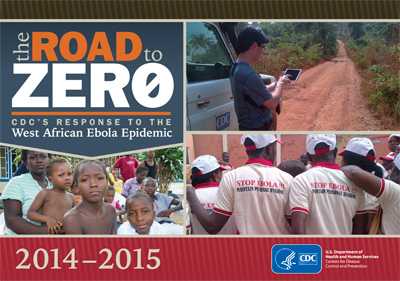
The Ebola epidemic has been one of the most challenging global public health emergencies in recent times. The size and scope of this epidemic illustrate the need for stronger, sustainable disease detection and prevention capacity worldwide. On May 9, 2015, more than a year after the outbreak began, the World Health Organization declared the end of the Ebola outbreak in Liberia, but at the end of June, a new case was reported. Cases continue to be reported in Guinea and Sierra Leone. The situation in Liberia shows how important it is to maintain surveillance and response capacity even after an outbreak is over. CDC continues to work in West Africa with the goal of stopping new cases in the affected countries and keeping them from spreading.
July 9, 2015, marks the one-year anniversary of CDC’s activation and response to the Ebola epidemic. Many important partners have responded to the Ebola epidemic, and CDC has worked closely with many of these organizations. Rather than reflecting the overall world response, this report documents CDC’s work during the outbreak, through the stories of our responders.
Health Communication in Guinea and Atlanta
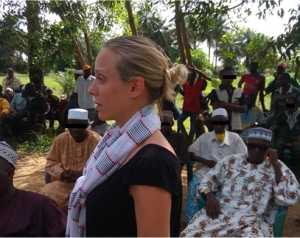 Since July 2014, CDC has sent staff on almost 3,000 deployments to support the Ebola response in West Africa, the United States, and elsewhere around the world. Responders fill a variety of roles, from disease detectives, to laboratorians, to logisticians, to health communication experts. Allison Friedman, a CDC health communication specialist, deployed to Guinea in the summer of 2015 then extended her deployment to support efforts of the health promotion team in EOC in Atlanta, GA.
Since July 2014, CDC has sent staff on almost 3,000 deployments to support the Ebola response in West Africa, the United States, and elsewhere around the world. Responders fill a variety of roles, from disease detectives, to laboratorians, to logisticians, to health communication experts. Allison Friedman, a CDC health communication specialist, deployed to Guinea in the summer of 2015 then extended her deployment to support efforts of the health promotion team in EOC in Atlanta, GA.
CDC Staff Support Sierra Leone
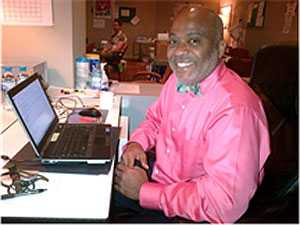 CDC Ebola responders Gary Cobb, Arthur Hudson, and Drenda Morrissette are accustomed to supporting CDC laboratorians and emergency preparedness personnel by providing them with the newest supplies and technologies. When they deployed to Sierra Leone in spring 2015 to provide logistical support for the Ebola response, they were met with several challenges. Despite these challenges, Gary, Arthur, and Drenda came away from their experiences with a sense of purpose and pride.
CDC Ebola responders Gary Cobb, Arthur Hudson, and Drenda Morrissette are accustomed to supporting CDC laboratorians and emergency preparedness personnel by providing them with the newest supplies and technologies. When they deployed to Sierra Leone in spring 2015 to provide logistical support for the Ebola response, they were met with several challenges. Despite these challenges, Gary, Arthur, and Drenda came away from their experiences with a sense of purpose and pride.
Experiences in the Field: Life as a Laboratorian
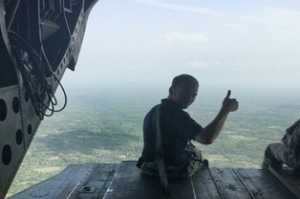 It takes a special kind of laboratorian to volunteer to work in a field laboratory: Long hours, high temperatures, tough demands, and even a surprising knowledge of electrical engineering. CDC Ebola responders John Saindon, who deployed to Liberia, and Brian Bird, who deployed three times to Sierra Leone, describe their experiences in the field to overcome key challenges in improving in-country laboratories. Difficulties aside, both Saindon and Bird found their experiences as laboratorians rewarding and memorable.
It takes a special kind of laboratorian to volunteer to work in a field laboratory: Long hours, high temperatures, tough demands, and even a surprising knowledge of electrical engineering. CDC Ebola responders John Saindon, who deployed to Liberia, and Brian Bird, who deployed three times to Sierra Leone, describe their experiences in the field to overcome key challenges in improving in-country laboratories. Difficulties aside, both Saindon and Bird found their experiences as laboratorians rewarding and memorable.
Inside an Ebola Treatment Unit
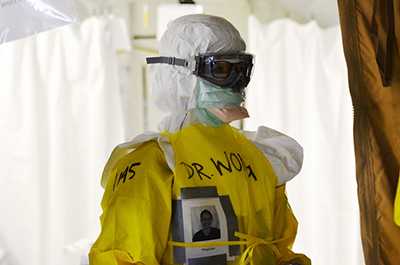 Each day Ebola responders go to great lengths to work safely and effectively in Ebola treatment units (ETUs). CDC Ebola responder Karen Wong describes the importance of having a plan in place to determine what responders need to do to protect themselves and others when entering an ETU. Although one may become used to the familiar routine, responders must act cautiously and deliberately each time they use personal protective equipment (PPE) and develop innovative ways to communicate with colleagues under challenging circumstances.
Each day Ebola responders go to great lengths to work safely and effectively in Ebola treatment units (ETUs). CDC Ebola responder Karen Wong describes the importance of having a plan in place to determine what responders need to do to protect themselves and others when entering an ETU. Although one may become used to the familiar routine, responders must act cautiously and deliberately each time they use personal protective equipment (PPE) and develop innovative ways to communicate with colleagues under challenging circumstances.
Students Write Letters to CDC Ebola Responders
 Last fall, during the peak of the Ebola outbreak, Cleveland Heights High School students wrote letters to CDC staff working on the Ebola response. The responders did what they do best: respond.
Last fall, during the peak of the Ebola outbreak, Cleveland Heights High School students wrote letters to CDC staff working on the Ebola response. The responders did what they do best: respond.
The letters that CDC staff received from the students were thoughtful and asked important questions about CDC’s work fighting the Ebola outbreak. CDC employees were so touched by these letters that they decided to write back, and not only sent letters but also pictures and maps from West Africa.
Infection Prevention & Control - Sierra Leone
 CDC Ebola responder Angela Dunn describes the importance of considering culture when fighting Ebola in West Africa. Infection prevention and control (IPC) is crucial in containing the Ebola epidemic, but some traditional beliefs and practices, such as traditional burials, can make IPC efforts difficult. Sierra Leoneans are dedicated to stopping Ebola and have had to break from cultural traditions to honor their deceased. By working with village and religious leaders in Sierra Leone, Ebola fighters have helped to make burials safer while still being respectful of local beliefs.
CDC Ebola responder Angela Dunn describes the importance of considering culture when fighting Ebola in West Africa. Infection prevention and control (IPC) is crucial in containing the Ebola epidemic, but some traditional beliefs and practices, such as traditional burials, can make IPC efforts difficult. Sierra Leoneans are dedicated to stopping Ebola and have had to break from cultural traditions to honor their deceased. By working with village and religious leaders in Sierra Leone, Ebola fighters have helped to make burials safer while still being respectful of local beliefs.
Infection Prevention & Control - Liberia
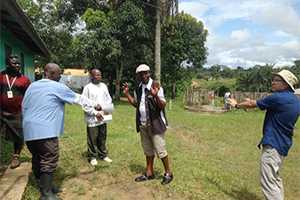 At the height of the Ebola response, CDC Ebola responder Brant Goode traveled to Liberia to train health workers and community members on infection prevention and control (IPC) practices critical in preventing infections among not just the general public, but also the people caring for them. To control Ebola, IPC practices must go beyond personal protective equipment and include measures like controlled access to facilities and patient triage. Efforts to prioritize IPC can lead to reduced disease transmission risk and better work flow in health facilities.
At the height of the Ebola response, CDC Ebola responder Brant Goode traveled to Liberia to train health workers and community members on infection prevention and control (IPC) practices critical in preventing infections among not just the general public, but also the people caring for them. To control Ebola, IPC practices must go beyond personal protective equipment and include measures like controlled access to facilities and patient triage. Efforts to prioritize IPC can lead to reduced disease transmission risk and better work flow in health facilities.
- Page last reviewed: November 3, 2015
- Page last updated: November 3, 2015
- Content source:



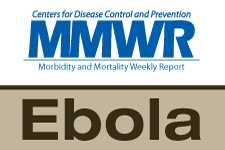
 ShareCompartir
ShareCompartir